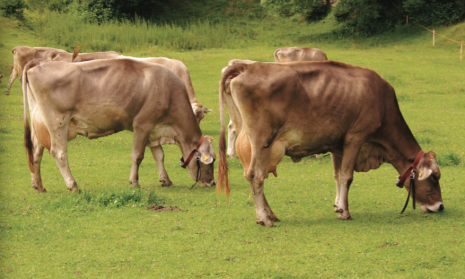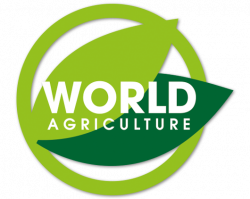Book and report reviews - Good Food for Everyone Forever

Colin Tudge, Pari Publishing. paperback, 176pp, ISBN: 978-88- 95604-13-8
The main message of this book, declares Colin Tudge with a focus on the world’s growing population, is that we, ... can feed ourselves to the highest standards both of nutrition and gastronomy; that we can do so forever ... without cruelty to livestock, without wrecking the rest of the world and driving other species to extinction. This is no small claim, the more so as food production is not the major source of pressure on the world’s ecology and biodiversity.
Leaving the hyperbole aside for the moment, this objective, according to Colin, is to be achieved by turning away from science-based industrialised farming to science assisted craft farming. Unfortunately the book lacks an index, so one has to search hard to find a definition of science-assisted farming, which appears to be traditional early twentieth century farming or, as Colin grandly describes it, enlightened farming.
In order to convince at least this reviewer that his vision is practical, Colin needed to demonstrate that his science- assisted craft farming would, when com- pared to modern industrialised farming, better feed the world’s enlarging and increasingly affluent population. To my mind this means it must be superior not only in terms of ecological sustainability, but also in terms of economic and social sustainability.
Put simply, businesses pro- ducing food must, without subsidy, not only be profitable and capable of produc- ing an acceptable standard of living for all engaged, but also they must deliver to society both the quantity and variety of food it desires at affordable prices.
I am afraid that on this test Colin’s vision is not superior and I’m sorry to say that despite working for some eminent scientific insti- tutions in his career, his arguments have more in common with Romanticism than the scientific rationalism associated with the word enlightenment.
The book, not particularly long at 173 pages, devotes far too much time to irrel- evant considerations such as the risible observation that modern farming is all about profit, not food, and the irrational claims such as nasty people are in charge of the food system. According to Colin, enlightened farming eschews high-tech solutions, large-scale mechanical power, artificial fertilisers and pesticides.
Note the use of the word artificial rather than the more correct, but less emotive inor- ganic. Paradoxically, the rather vague, if not vacuous description of enlightened farming is revealed in Colin’s attempt to differentiate it from organic farming. Admitting that organic farming could not ... provide good food for everyone forever ... we are told that enlightened farming does not ... ban technology a priori on first principles.
Sometimes artificial fertilisers ... can give a crop just the boost it needs to make full use of transient sunshine or rain. Sometimes particularly recalcitrant pests can be controlled most efficiently, and with least collateral damage to other wild creatures, with pesticides.
This statement not only appears in con- flict with his criticisms of modern farming, but also is ironically a description that could be accurately applied to modern, large scale industrial farming. Colin attempts to get round this contradiction by implying that the laws of economics do not apply to large-scale industrial farms which are the product of the flawed economic system in which businesses in developed nations operate.
Colin argues – without any supporting evidence – that the prevailing economic framework ensures that ... the highest of technologies are deployed primarily or even exclusively by corporates, who in turn work hand-in-hand with powerful governments, so that in practice they become agents of social and political control.
This is fairly typical of the book’s approach, which I believe is devalued by such outlandish claims. In effect, the book is more a criticism of modernity and the democratic systems that govern advanced economies than a serious study of future food production, backed-up by data capable of supporting the viability of his vision.
And it makes it difficult to take the author seriously; at best it reflects a breath-taking ignorance of even basic economic forces. At the very heart of a sustainable system must be sustainable i.e. profitable businesses. The high standards of living achieved by modern econ- omies are based ultimately on the profit incentive that under the constraints imp- osed by competition ensure that rational
businesses only invest in technologies and production systems that they believe will provide a return on their investment; any other approach threatens the longer term viability of their businesses.
In this respect farming is a business, like any other, and this seems to be the nub of Colin’s criticisms. He argues that farming is special and it is undeniable that food is primus inter pares when it comes to the basic necessities of life. But to my mind, this is all the more reason for researching and applying scientific techniques – including modern scales of operation – that collectively lower the price of food and increase food security.
And although the world has experimented with other systems we have yet to find one that is superior to competitive industries in rewarding market leaders with suf- ficient profits to finance continued improvements in productivity and quality.
The adoption of science-based moder- nity gave the world the Green Revolution in the 1960s which is generally credited with keeping food production growing faster than the world’s population. But with breathtaking audacity Colin claims that there was ... a lot wrong with the Green Revolution. For one thing it put a lot of farmers out of work.
And he goes on by increasing output it lowers agricultural prices. So now we have it. Colin’s idea of enlightened farming is one where the individual farmer, however efficient and costly, becomes the ultimate beneficiary and consumers are expected to pay for this in the form of higher prices and, as we shall see, reduced choice.
This approach to business and its customers, as demonstrated by the former Soviet Union, is a recipe for inefficiency, lower living standards and ultimately collapse. Colin seems to think that modern farming only leads to gluts. Well tell that to the one billion people who go to bed hungry and malnourished in our world today and nearer home, with levels of food inflation not seen for over a generation, I imagine most consumers would take strong exception to being asked to pay more.
In a free society individuals can spend their money on what they believe will give them the highest satisfaction. For some people this means devoting part of their income to high-priced speciality food products. That’s their choice, but to force high prices on the population, not to mention the unemployed, single parent families and pensioners, is both morally wrong and highly inefficient.
What happens to the people employed in other industries if the population were forced to divert more of its income to food? Choice also brings us to the issue of meat consumption and this is central to Colin’s vision. He seems to imagine that in pre-history humanity lived mainly on plants and that the consumption of meat is mainly the result of farmers realis- ing that ... far more cash can be generat- ed overall if wheat is ... fed to pigs and poultry ... as well as ... cattle.
But we were hunter-gatherers before we learnt to farm and more to the point, for most people the consumption of meat is a natural choice -its consumption improves their welfare and it is an important source of nourishment.
In truth Colin’s vision of providing good food for everyone is based on denying them the diets they can currently afford and freely choose. His vision is to turn the clock back to some mythical rural idyll where populations are required to devote a much larger share of their income to food while suffering a dramatic reduction in the availability of meat and presumably dairy products.
Just how Colin arrives at the conclusion that society would be better off i.e. happier, under his restrictive regime is not explained. I’m pretty certain that the many millions of people now being released from abject poverty in the world’s developing nations who are freely and willingly increasing their consumption of meat and dairy products would need some convincing.
Closer to home, he seems to fail to grasp that the welfare of populations rests to a large extent on the provision and exercise of choice.
Overall my sense in reading this book is one of disappointment and this reviewer was not convinced that Colin’s vision of enlightened farming is credible. To my mind this book does not practically contribute to the increasing problem of feeding a growing and developing world in the twenty-first century.
I will continue to put my faith in science and technology to feed the world to the highest possible standards at affordable prices. In the absence of scientific and statistical evidence that at least offers scope for testable hypotheses, Colin’s vision of enlightened farming remains just that; indeed, it is a dangerous vision that not only rejects modernity but would, like
Pol Pot, impose a version of agrarian socialism whereby many urban dwellers would be required to relocate to the countryside to work on smallscale farms as labourers.
Download pdf
